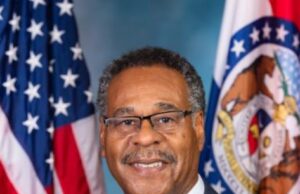COMMUNITY VOLUNTEERS LEND HELPING HANDS TO BUILD HOMES FOR FIVE AREA FAMILIES
Five Area Families
BARABOO, WI – September 27, 2013 – (RealEstateRama) — Habitat for Humanity of Sauk-Columbia Area (HFHSCA) joined forces with Neighborhood Housing Services of Richland County to host a Community Workday today to highlight the extraordinary works happening locally to provide affordable housing to area families.
More than 30 volunteers turned out and worked alongside five future homeowners who are thrilled to be creating a safe, special place to call home for their families – a home that they have built with their own hands.
“Everyone involved, the volunteers and partner organizations, believe in the dream of homeownership,” said HFHSCA Executive Director Eleanor Chiquoine. The volunteers and partners are so important to making these dreams come true, and without them we couldn’t do what we do.”
These homes, located on Silver Drive in Baraboo, are being built as a part of the Mutual Self-Help Program. The program is funded in partnership with a grant from the United States Department of Agriculture (USDA) Rural Development and is administered locally by HFHSCA.
“This is a natural partnership, for both Rural Development and Habitat for Humanity have a legacy of dedication and investment in providing homeownership,” said Carol Wetuski, USDA Rural Development Area Director. “USDA Rural Development is proud to partner with Habitat for Humanity of the Sauk and Columbia Areas to increase their ability to assist locally and help to improve quality of life of area residents through homeownership.”
The USDA Rural Development Mutual Self Help Housing program organizes families to cooperatively work in groups. The families provide 65 percent of the construction labor, or “sweat equity,” on their own and each other’s homes under qualified supervision. In return for the many hours of “sweat equity” they spend building their homes, they are able purchase their houses at a reduced price. They also may qualify for low, fixed interest rates with no down payment. By the time construction is done, they’ll end up with more than $20,000 worth of equity in their homes. The savings from the reduction in labor costs allows otherwise ineligible families to become homeowners.
State Assembly Representative Fred Clark stated, “This is a great example of how to leverage time, talent, and people across federal, state and local levels. This is how communities, like Baraboo, remain the strong, vibrant communities they are.’
“Prior to partnering with USDA we were only able to build one to two houses per year, maximum,” added Chiquoine. “With this program we have nearly tripled that number. We are optimistic and thrilled about our experience with the Self-Help Program. These homes not only have an impact on the homeowners, but the children that will live in these homes will benefit exponentially and the community, as a whole, will benefit by gaining this great neighborhood.”
HFHSCA, in partnership with Neighborhood Housing Services of Richland County, will oversee a similar project in Reedsburg next year. Selection of those families is currently underway. Information meetings will be held at the Reedsburg Public Library at 6:30 PM on Tuesday, October 9, 2013 and Wednesday, October 22, 2013. For more information, visit www.hfhsca.org or call 448-2888.
Since 2003, HFHSCA has constructed 15 homes. Habitat for Humanity homes are simple, decent, homes built without frills that cost between $60,000 and $105,000 to build. The average mortgage payment is between $500 – $775, including taxes and insurance. The construction program is designed to assist families and individuals that would not be able to own their own home in any other way.
USDA Rural Development’s housing loans and grants make a significant difference in the lives of thousands of rural Americans across the nation. These investments boost rural economies and create jobs. During the past year, USDA Rural Development has assisted more than 9,800 Wisconsin residents through the various housing programs the Agency administers.
USDA Rural Development’s mission is to deliver programs in a way that will support increasing economic opportunity and improve the quality of life of rural residents. As the lead federal agency for rural development needs, USDA Rural Development returned over $827.8 million dollars this past year to rural Wisconsin communities. Funds are used to finance and foster growth in homeownership, business development, and critical community and technological infrastructures. Further information on USDA Rural Development programs is available by visiting the web site at http://www.rurdev.usda.gov/wi.
USDA has already undertaken historic efforts since 2009 to save more than $828 million in taxpayer funds through targeted, common-sense budget reductions. These reductions have put USDA in a better position to carry out its mission, while implementing sequester budget reductions in a fair manner that causes as little disruption as possible.
###
USDA is an equal opportunity provider and employer.
If you wish to file a Civil Rights program complaint of discrimination, complete the USDA Program Discrimination Complaint Form (PDF), found online at http://www.ascr.usda.gov/complaint_filing_cust.html, or at any USDA office, or call (866) 632-9992 to request the form. You may also write a letter containing all of the information requested in the form. Send your completed complaint form or letter to us by mail at U.S. Department of Agriculture, Director, Office of Adjudication, 1400 Independence Avenue, S.W., Washington, D.C. 20250-9410, by fax (202) 690-7442 or email at .
Contact: Kelly Edwards | (715) 701-2741 |
To Interview USDA Rural Development State Director Stan Gruszynski, you may contact him directly at:
Tonight:715-340-3233
Tommorrow AM: 715-701-1086















